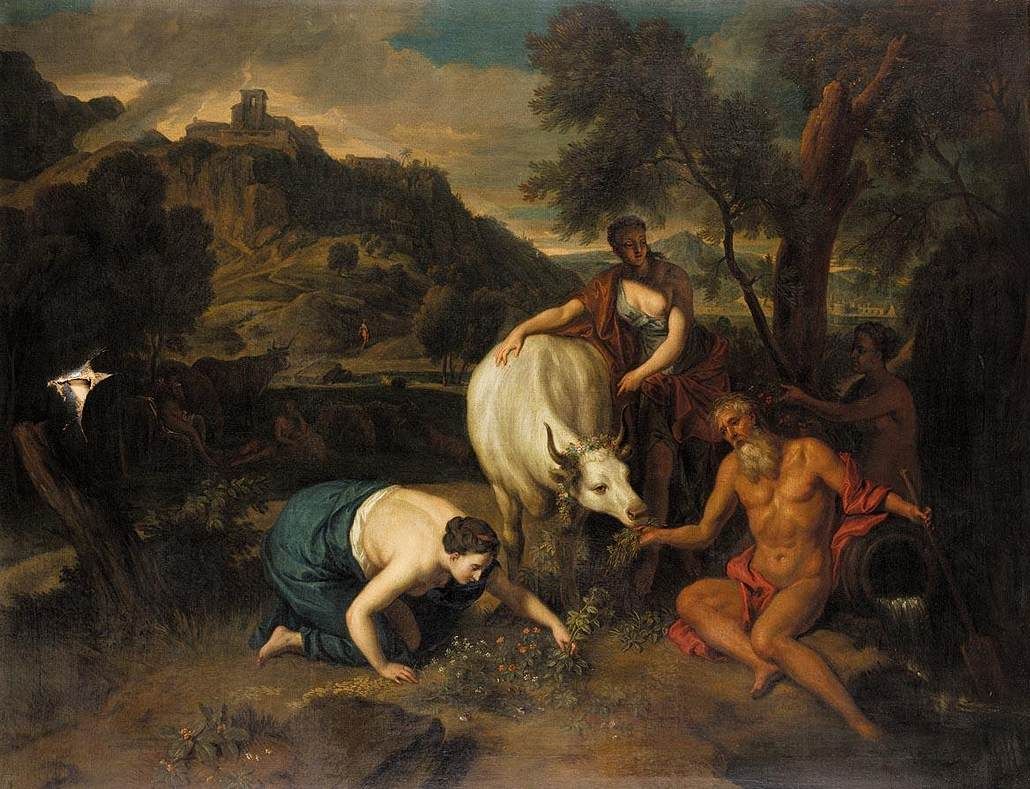A name as small as a whisper, as vast as a world. With the formation of io, the line between human and divine, individual and collective, dissolves—by design.
There are names that sound like noise, and names that carry entire cosmologies in their syllables.
"io" is two letters. Whispered, not shouted. But behind that modest lowercase symmetry is the quiet start of something immense.
This week, the tech world was shaken by the news that Jony Ive—the creative force behind Apple’s most iconic designs—and OpenAI, the frontier-pushing AI company led by Sam Altman, have joined forces through the creation of a new company named io. The name is stylized simply: not capitalized, not adorned. Just two letters that open more than they reveal.
On the surface, the name “io” invokes something familiar to technologists: input/output. The fundamental exchange between a system and its environment. It’s a functional term, elemental in computing, and perfectly aligned with AI—a domain governed by the dance of prompts and responses. But this explanation is only scratching the surface; there's likely a deeper meaning.
 In Greek mythology, Io was not a god. She was a mortal. And the object of Zeus's relentless desire.
In Greek mythology, Io was not a god. She was a mortal. And the object of Zeus's relentless desire.
According to myth, Zeus fell for Io and, to shield his affection for Io from his wife Hera's wrath, he transformed her into a white cow to hide her in plain sight. Hera, suspicious, requested the cow as a gift and placed her under the watch of Argus Panoptes, a giant with a hundred eyes. Eventually Zeus succeeded in plotting to free Io and she eventually returned to her mortal human form where it's said she birthed a new lineage of kings.
Where Mortals Become Gods
To name a company "io" is to reach for a deeper mythos. It is to evoke that mortal who enamored Zeus himself. The chosen one. The spark that divine forces reorganize themselves around. In its simplicity, it is a name charged with longing, beauty, and consequence.
That mythology is not incidental. I believe it tells us something profound about what this company is aiming to become.
Jony Ive’s designs have always carried a kind of mythic simplicity. The iPhone, the iMac, the Apple Watch—objects that didn’t just perform, but felt inevitable. With io, he is returning to the space between person and machine. Only now, the material is not just aluminum or glass. It is intelligence itself.
OpenAI brings the other half: the evolving mind. The transformer. The large language model that doesn’t just process, but understands. Not perfectly, but enough to suggest something uncanny.
What kind of product does this pairing create?
If history is any guide, it won’t be a chatbot in a prettier box. It will be something new. Something mythic.
Think again about the name: io. Not just input/output. Not just a Greek myth. But a visual symbol.
"i" is the individual. The self. The user. The human. The point of origin.
"o" is the circle. The world. The collective. The whole. The network of all knowledge, all culture, all others.
To put them side by side is to collapse the distinction. To say: you are not separate from the system. The individual and the collective are one in the same.
The device you hold is not a tool apart from you—it is the interface between your intent and the full breadth of human thought.
This is what io could mean: a company designing products that embody the collective in the individual. The best of everyone, distilled into something anyone can access.
Not just an assistant. Not just a model. Something more graceful. More embodied. The collective in one.
That phrase—the collective in one—feels central to io’s naming. It could well reframe what it means to carry intelligence in your pocket. Imagine a device designed not to consume your attention, but to reflect your intent. Imagine a system that draws from all of humanity’s accumulated knowledge, not to overwhelm you, but to empower you.
Imagine an interface so seamless that it feels less like an app and more like a voice that understands—not just your words, but your context, your goals, your style, your needs.
This is where Ive’s sensibility meets OpenAI’s scale. To make something intimate and infinite at the same time.
A god in your pocket.
A Signal, Not a Slogan
Of course, this is speculation. No products exist yet. The company is still assembling. But the symbolism seems filled with potential; the name isn’t random, it’s a signal of what's to come.
The best technologies are not the ones that scream the loudest. They’re the ones that fade into the rhythm of daily life and change everything anyway. For io to succeed, it must not feel like a new device. It will feel like a shift in how we perceive ourselves in relation to others. Like carrying the accumulated intuition of the world, folded into something human-scale.
Something elegant enough to be beautiful. Capable enough to be useful. And quiet enough to be trusted.
That’s what the name promises. That seems to be what the myth foreshadows.
io: the input and the output.
io: the individual and the collective.
io: a god in your pocket.



